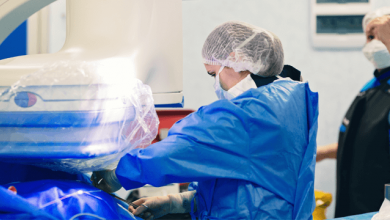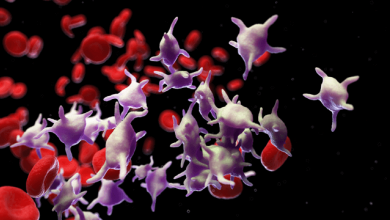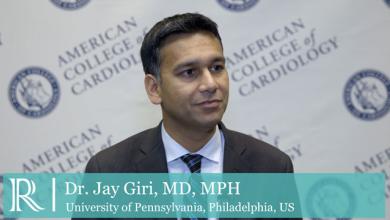Search results
Author(s):
Jean-Philippe Collet
Added:
3 years ago
The role of platelets in coronary artery thrombosis is well-established.1 They also play a critical role in a number of cardiovascular conditions including stroke, peripheral vascular disease and diabetes, and may be involved in the pathology underlying atherosclerotic changes.1 Antiplatelet agents such as clopidogrel, a platelet P2Y12 receptor antagonist, and aspirin are used for the prevention…
View more
Robert F Storey
Job title: Professor and Honorary Consultant in Cardiology
Author
Author(s):
Jean-Philippe Collet
,
Jochem Wouter van Werkum
Added:
3 years ago
Antiplatelet therapy is the standard of care for patients with acute coronary syndromes (ACS) and/or patients undergoing percutaneous coronary intervention (PCI) with stenting.1–3 Plaque rupture and/or iatrogenic vascular damage during PCI would normally result in the development of intravascular thrombus. Findings across multiple investigations consistently demonstrate the effectiveness of dual…
View more
Author(s):
Timm Bauer
,
Christian Hamm
Added:
3 years ago
Introduction
Antiplatelet therapy is a cornerstone in coronary artery disease (CAD) management. Acetylsalicyclic acid (ASA) has been known for many decades to have antithrombotic efficacy. Already in the 1980’s, the ISIS-2 study demonstrated that ASA reduces mortality in acute myocardial infarction (AMI) by 23 %.1 ASA leads to irreversible inactivation of cyclooxygenase 1 and thereby blocks the…
View more
Author(s):
Kalaivani Mahadevan
,
Claudia Cosgrove
,
Julian Strange
Added:
2 years ago
Author(s):
Mohammad Sahebjalal
,
Nick Curzen
Added:
3 years ago
Antiplatelet therapy (APT) represents a major cornerstone in the secondary prevention of coronary artery disease, along with modifying patients’ risk factors. Furthermore, it has been clear, since early unsuccessful regimens, including warfarin and dypiridamole with aspirin, that it is APT that stops coronary stents from clotting off and causing stent thrombosis.1,2 Specifically, the requirement…
View more
Author(s):
Nilesh Pareek
,
Peter Kordis
,
Ian Webb
,
et al
Added:
3 years ago
Out-of-hospital cardiac arrest (OHCA) is defined as the sudden absence of cardiac mechanical contractility with loss of signs of circulation that occurs within a community setting.1 OHCA affects more than half a million patients globally per year and is one the leading causes of death in developing countries.2 In the US, OHCA affects 350,000 patients per year and is the third leading cause of…
View more
Anticoagulation after TAVI
Author(s):
Antonio Greco
,
Davide Capodanno
Added:
3 years ago
Article
Author(s):
Jay Giri
Added:
5 years ago
Jay Giri discusses ADAPT - Assessment of Prospective CYP2C19 Genotype Guided Dosing of Anti-Platelet Therapy in Percutaneous Coronary Intervention.
Filmed by Radcliffe Cardiology on-site at the American College of Cardiology congress 2018 in Orlando, USA.
View more
Author(s):
Peter Mortier
,
Heleen MM van Beusekom
,
Matthieu De Beule
,
et al
Added:
3 years ago
Incomplete stent apposition (ISA) or stent malapposition is the lack of contact between stent struts and the underlying arterial wall. ISA has been associated with significantly higher levels of thrombus deposition1 and is typically assessed by intravascular imaging techniques such as optical coherence tomography (OCT) and intravascular ultrasound (IVUS).2–4 These imaging modalities are useful to…
View more















